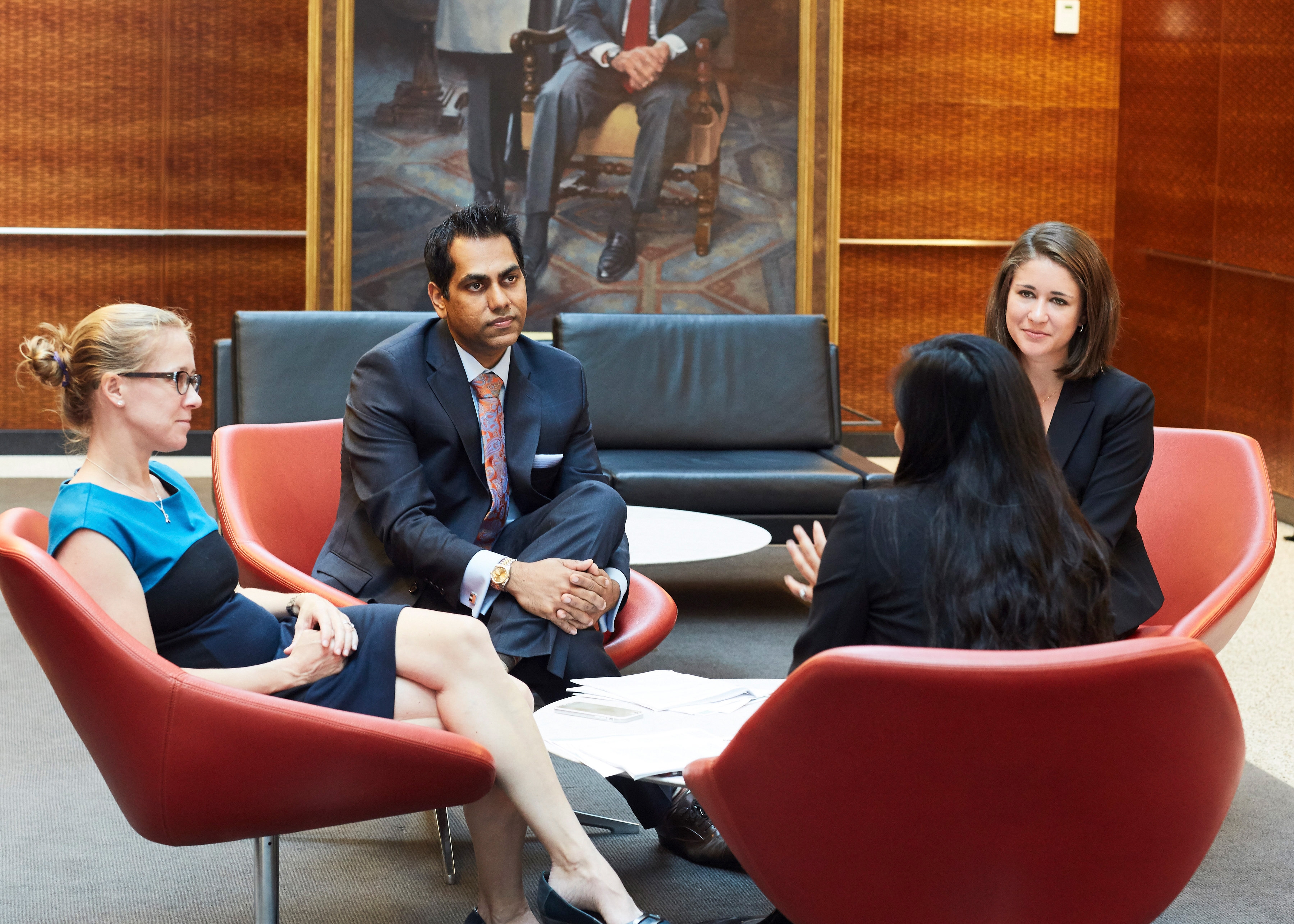As the daughter of two physicians, Shokhi Goel spent her childhood absorbing what the day-to-day practice of medicine looked and felt like to her parents. And she watched as her grandparents went in and out of the healthcare system in three countries: India, England and the United States. These experiences exposed her to the diverse systems in which physicians care for patients, and inspired her to consider a career in which she might, as a doctor, also become a leader in healthcare delivery.
"I had the opportunity to look at healthcare very close up, from a lot of different perspectives," said Goel, 22, of Indiana, who is a second-year medical student at Weill Cornell Medical College. "I saw teamwork, commitment to innovation and patient care — and that's what really drove me."
Goel '19 got an opportunity to learn about how medicine intersects with business through a new summer program at Weill Cornell Medicine that exposes medical students to healthcare leadership and management.
Established this year, the eight-week Healthcare Leadership and Management (HLM) Scholars Program exposed Goel and her classmate, Sapir Nachum '19, to hospital administration and finance, clinical quality and patient safety, policy making and clinical operations management, and engaged in their own research projects. The experience confirmed for Goel and Nachum what they knew going in: that they want to integrate healthcare management into their practice. In fact, they are both strongly considering pursuing joint medical and Master of Business administration degrees.
Contextualizing medicine through the lens of business and management will provide the next cadre of physician-leaders with the necessary tools to deliver patient care while shaping policies and practices that will improve the quality, efficiency and value of that care, said program founder and director Dr. Rahul Sharma, who has also earned a Master of Business Administration.

"I always believed that, in order for us to be successful in medicine in general, we have to ensure that our future leaders and students are equipped with skills in management, leadership and healthcare operations," said Dr. Sharma, chief of the Division of Emergency Medicine and associate professor of clinical medicine at Weill Cornell Medicine.
"The goal of the fellowship is to provide our medical students with the skills and experience that is required for them to thrive in today's healthcare environment," added Dr. Sharma, who is also emergency physician-in-chief at NewYork-Presbyterian/Weill Cornell Medical Center. "I believe that all physicians must be leaders because we're always leading a team and, as a leader, you try to make every decision — whether it's clinical, financial or operational — always putting the patient first."
Over the course of the summer, Goel and Nachum shadowed an Emergency Medicine faculty member weekly in the NewYork-Presbyterian/Weill Cornell Emergency Department; sat in on a series of administrative and leadership meetings and had one-on-one meetings with faculty members on various topics in healthcare; and participated in a weekly journal club to discuss and present on pre-assigned healthcare and leadership-themed articles. Faculty members for the HLM Scholars Program included several department chairs and members of NewYork-Presbyterian senior leadership.
"The biggest takeaway from the fellowship is that so much happens behind the scenes in the hospital, and it takes a lot of individuals and collaboration to get it done," said Nachum, 23, of Virginia. "It's not just one group; it's a collaboration of doctors, nurses, physician assistants, patient services — everyone is working together to improve patient care."
To reinforce the concepts they learned, both students pursued independent research projects — Nachum investigated how hospitals can reduce catheter-associated urinary tract infections in patients with acute kidney failure, while Goel worked to identify errors in radiation workflow in order to avoid unnecessary radiation exposure for patients in the future.
These research opportunities dovetail perfectly with Weill Cornell Medical College's new curriculum, said Dr. Joseph Murray, associate dean of student affairs. Unveiled in fall 2014, the curriculum integrates basic science with clinical care and offers students a cross-disciplinary, thematic view of medicine. It also encourages students to delve into subject areas and fields that are of interest to them.
"In our new curriculum, students have the opportunity to explore their interests with faculty — to do research and share knowledge," noted Dr. Murray, who is also an associate profess of clinical psychiatry at Weill Cornell Medicine. "Sapir and Shokhi have gotten a head start on this. In their last two years of school, students will have six months of protected time to do similar research or to build upon the fantastic work they did in summer programs like the HLM Scholars Program."
Nachum was first exposed to healthcare management during an internship before medical school at the pharmaceutical company Eli Lilly and Company. There, she worked with software developers, engineers, operators and analysts to develop a digital platform that would enable the company to demonstrate to the U.S. Food and Drug Administration that insulin medication they produce is properly sterilized.
Through her experience at Eli Lilly, Nachum realized the value of understanding how various components of the healthcare industry work and the difference she could make in improving clinical quality and processes by being entrenched in healthcare management. That's why she jumped at the fellowship opportunity.
"It's very important to be continuously improving the healthcare we are providing," she said.
No less so as the Affordable Care Act continues to spark new healthcare policies and financial and delivery models.
"Healthcare is constantly changing — and will continue to do so as we start our clinical practice," said Goel, who is the treasurer at the Weill Cornell Community Clinic. "This fellowship has equipped us with the skills and the insight to create solutions that will allow us to keep up with the new models of healthcare delivery in the future."

